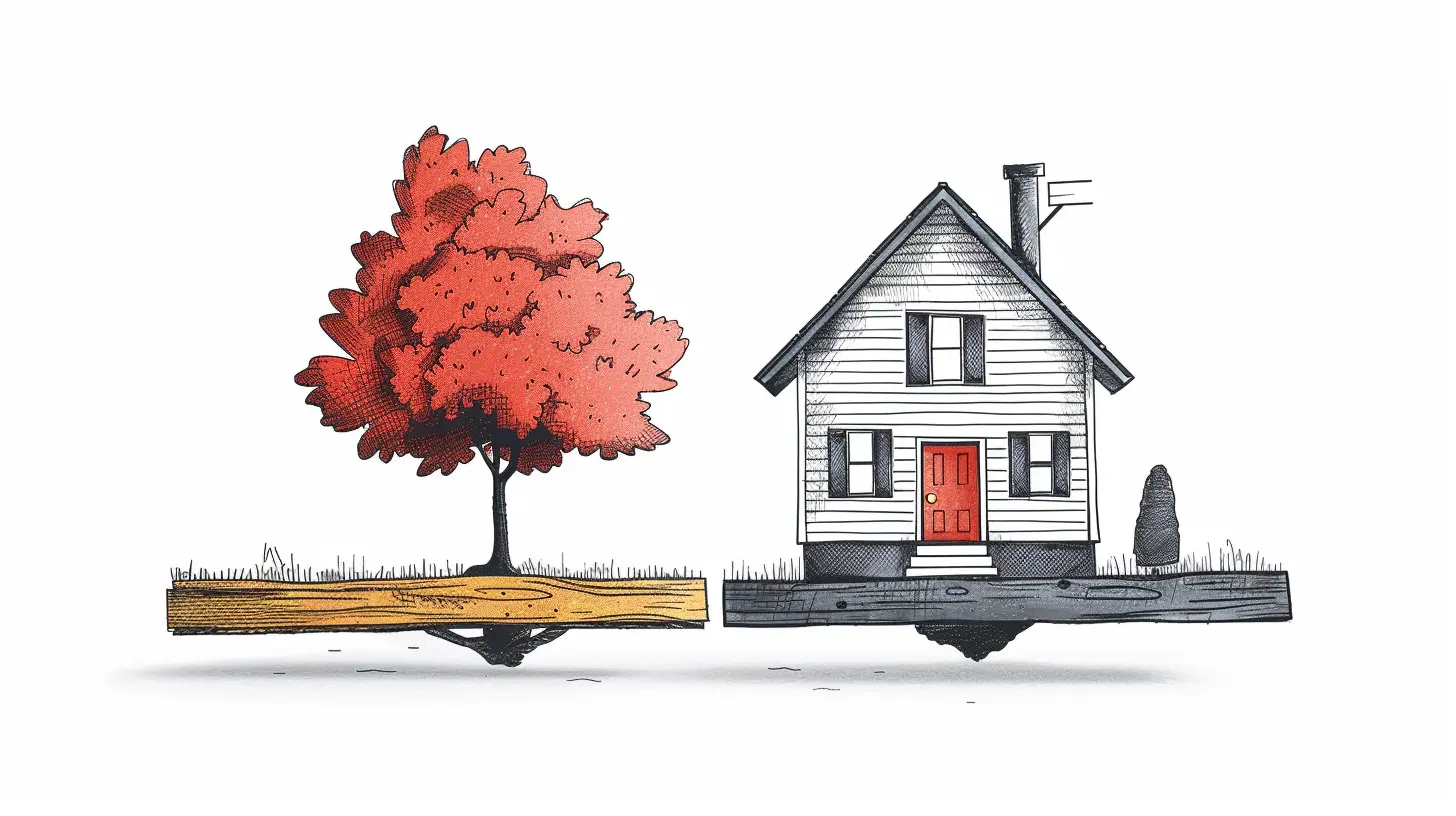29 November 2024
When it comes to real estate investing, two buzzwords often dominate the conversation: cash flow and capital gains. You’ve probably heard people say, “I’m looking for a property with great cash flow” or “I’m holding onto it for the capital gains.” But what do these terms actually mean? More importantly, how do they play into your overall investment strategy? If you're scratching your head over it, don’t worry—you’re not alone! Let’s break this down in a simple, no-jargon way and dive into the fundamental differences.
What Is Cash Flow in Real Estate?
Let’s get straight to the point: cash flow is the money left in your pocket after all the bills are paid. Think of it like owning a vending machine. After you stock it with snacks (your initial investment) and pay for operational costs like electricity and maintenance (expenses), whatever money comes in from snack sales is your profit—or in real estate terms, your cash flow.Here’s how it works when applied to real estate:
1. You buy a rental property.
2. Tenants pay rent every month (woohoo, money coming in!).
3. You subtract your monthly expenses like the mortgage, property taxes, insurance, and maintenance.
4. The leftover cash? That’s your cash flow.
Sounds simple, right? It is, but the magic lies in finding the right balance between income and expenses. A property with a positive cash flow (where income exceeds expenses) is worth its weight in gold. It means you're not just covering costs—you’re making money every single month.
Positive vs. Negative Cash Flow
- Positive Cash Flow: This is the dream! Your rental income is higher than your expenses, so you're earning extra cash every month.- Negative Cash Flow: No one likes this. Your expenses are eating up more than what you’re making in rent. Ouch.
Why Is Cash Flow Important?
If we’re talking about steady, predictable income, cash flow is king. It’s especially helpful if you want to quit the 9-to-5 grind and live off your investments. Plus, in times of market downturns, properties with good cash flow can help you ride out the storm. Think of it as your financial safety net.
What Are Capital Gains in Real Estate?
Now, let’s flip the script. Capital gains refer to the profit you make when you sell a property for more than what you paid for it. If cash flow is the slow, steady turtle, capital gains are the flashy hare. It’s all about the appreciation of property value over time.Here’s a simple example:
- You buy a house for $300,000.
- Five years later, the market value skyrockets, and you sell it for $400,000.
- That $100,000 difference? That’s your capital gain. (Of course, this is before accounting for selling costs, taxes, and other fees.)
Types of Capital Gains
1. Short-Term Capital Gains: If you sell the property within a year of buying it, any profits will be taxed as regular income. And yes, the tax bill can sting.2. Long-Term Capital Gains: Hold the property for more than a year, and you’ll usually pay less in taxes. Cha-ching!
Why Are Capital Gains Important?
Capital gains are the jackpot moment every investor dreams of. This is where real estate can be extraordinarily lucrative. However, these gains are often unpredictable. Markets can be fickle, and appreciation can take years—or may not happen at all. It’s like planting a tree and waiting for it to grow; sometimes it grows tall, other times it just… doesn’t.
Cash Flow vs. Capital Gains: What’s the Difference?
If you’re wondering how the two compare, think of cash flow as the gift that keeps on giving and capital gains as the one-time windfall. Both are great, but they serve very different purposes in an investment strategy.| Feature | Cash Flow | Capital Gains |
|----------------------|-------------------------------------------|------------------------------------------|
| Income Timing | Monthly or recurring | One-time, upon selling the property |
| Risk Level | Generally lower | Higher risk due to market fluctuations |
| Tax Implications | Typically treated as regular income | Taxed as short-term or long-term gains |
| Investment Focus | Income-generating properties | Appreciating properties |
How to Decide What’s Best for You
Here’s the million-dollar question: Should you focus on cash flow, capital gains, or both? Well, it depends on your goals, risk tolerance, and investment timeline. Let’s break it down further:If You Need Monthly Income...
Go for cash flow properties. These are perfect if you’re looking to supplement your income or achieve financial independence. For instance, retirees often lean heavily on cash flow to cover living expenses.If You’re in It for the Long Haul...
Capital gains might be your sweet spot. These properties require patience, as their value might take years to grow. But if you’re okay with locking up your money for a while, the payoff can be huge.Can You Have Both?
Absolutely! Some savvy investors aim for properties that generate decent cash flow while also having good appreciation potential. This way, you get the best of both worlds. It’s like having your cake and eating it too.Balancing the Two: Tips for Real Estate Success
Want to make the most out of your investments? Here are some quick tips for balancing cash flow and capital gains:1. Do Your Homework: Always research the local market. Some areas are better for cash flow, while others excel in property appreciation.
2. Crunch the Numbers: Use tools like cash-on-cash return and ROI calculators to analyze potential deals.
3. Diversify Your Portfolio: Don’t put all your eggs in one basket. Mix cash flow-focused properties with ones primed for capital gains.
4. Stay Patient: Real estate isn’t a get-rich-quick scheme. Play the long game, and you’ll see results.
5. Keep an Eye on Taxes: Work with a qualified accountant to understand how your investments will be taxed (because Uncle Sam always gets his cut).
Common Mistakes to Avoid
While cash flow and capital gains can both be incredibly lucrative, there are pitfalls to watch out for:- Overlooking Expenses: Don’t just focus on rental income. Account for all expenses, from maintenance to property management fees.
- Chasing Trends: Just because everyone’s talking about a “hot market” doesn’t mean it’s the right fit for you.
- Underestimating Risks: Capital gains rely heavily on market conditions, which can be unpredictable. Don’t assume appreciation will always happen.
- Neglecting Cash Flow: Even if you’re in it for capital gains, don’t ignore the importance of cash flow—it can keep your investment afloat during tough times.
Wrapping It All Up
At the end of the day, understanding cash flow versus capital gains is crucial for any real estate investor. Cash flow is your reliable buddy, giving you regular income to stay afloat, while capital gains are the big payout waiting down the road. Neither is inherently “better” than the other—it all comes down to your personal goals and strategy.So, what’s your game plan? Are you a cash flow enthusiast, a capital gains chaser, or maybe a bit of both? Remember, the best investment strategy is the one that aligns with your financial goals and lifestyle.












William Ramirez
Great article! This clear explanation of cash flow versus capital gains in real estate is incredibly helpful for both new and experienced investors. Understanding these concepts is key to making informed decisions. Well done!
March 6, 2025 at 1:24 PM